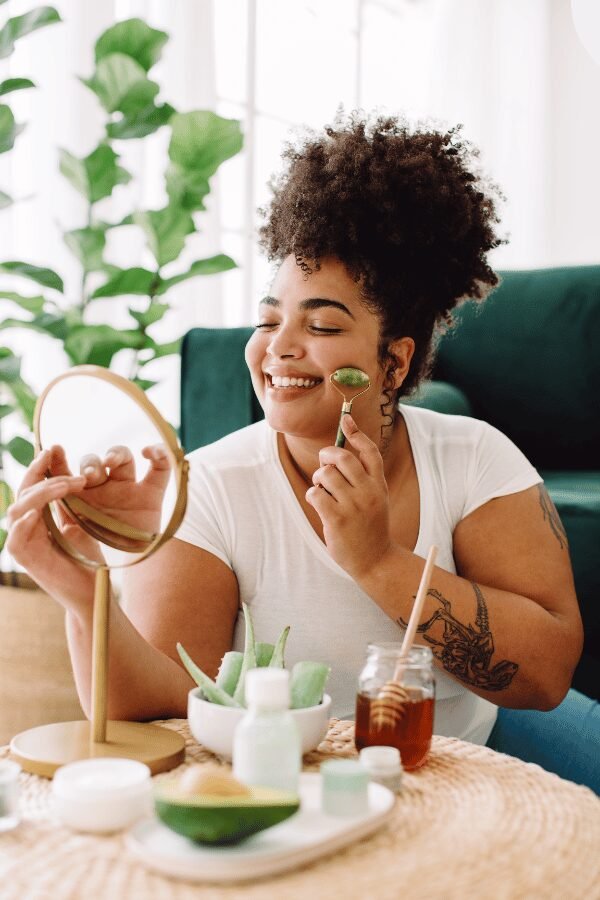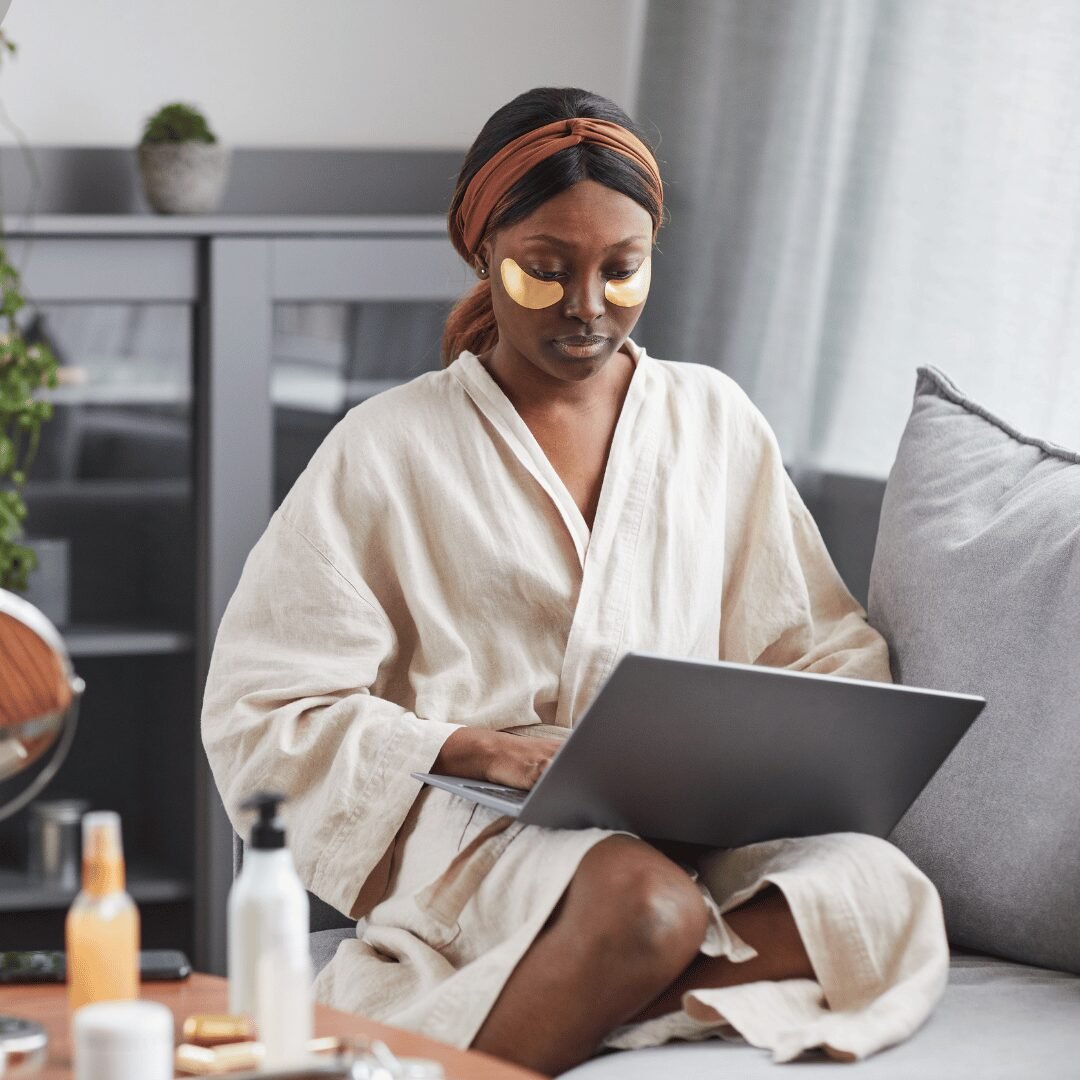Essential daily hygiene routine for everyone. A Complete Wellness Guide for Workaholics.
Vernica Singh
October 21, 2024. 4 minute Read
Often for workaholics, first is work, second is fitness, and third comes family. Personal Hygiene is never a priority. Juggling between work, family and fitness, we often find personal hygiene for confident and radiant personality, a liability than an asset.
Good personal hygiene is crucial for maintaining both physical health and social well-being. It’s a daily practice that not only prevents illness but also boosts self-confidence and enhances our quality of life.
On The One Liner, as flag bearers of wellness, we will explore everything from touching on fundamental aspects of cleanliness to the importance of good habits, to how to incorporate these practices into our daily lives.
"
In this article, we will explore hygiene and beauty maintenance hacks for everyday personal hygiene.
Why Does Personal Hygiene Matters?
Imagine this: you’re walking into a room full of people. Heads turn, but not because you’re a movie star—it’s because you’re sending off, let’s say, an “glamour”.
Personal hygiene isn’t only about cleaning or looking good. It’s also about your “aroma” and “glamour”.
The benefits of good hygiene extend beyond personal health; they also impact public health by reducing the transmission of diseases and promoting a cleaner environment.
In essence, personal hygiene is a responsibility that each of us has to ourselves and to those around us.
Now here is the thing: astrologically, it is said, if you work effortlessly on personal hygiene you attract venus/luxury in life.
The Essentials of Personal Hygiene
Adopting a consistent daily hygiene routine is key to maintaining health and cleanliness. Here are the essential steps to incorporate into a daily hygiene regimen:
1. Clean hands, clean souls
Hand Hygiene is your superpower!
Antibacterial soaps are generally considered unnecessary for most people and, if overused, can contribute to antibiotic resistance. Instead, one may use a mild, pH-balanced soap that is sufficient for daily hand hygiene.
One may use hand oils and lotions which also come with anti- bacterial and tan removing properties.Don’t forget to carry wet wipes and hand sanitizers which usually comes in handy, sunscreen with SPF 50 stays up to 4-5 hours and helps to protect from harmful UV rays and avoids skin cancer.
Regularly using a hand cream or lotion immediately after washing can help replenish moisture and maintain skin softness.
2. Flawless Skin
Your Glowing Armour!
Your skin takes the hits for you daily, fighting off dirt and pollution like a pro. So keeping it clean and healthy is essential.
Use a gentle cleanser that suits your skin type—whether it’s oily, dry, combination, or sensitive. Avoid harsh soaps that can strip away natural oils and disrupt the skin’s pH balance.
For dry skin, opt for a thicker, oil-based cream; for oily skin, a lightweight, water-based lotion is preferable. Those with sensitive skin should select fragrance-free and chemical free. Protect your skin from harmful UV rays by applying sunscreen with an SPF of at least 30 when going outdoors.
This involves using scrubs with tiny particles or brushes. Exfoliating removes dead skin cells that can clog pores and lead to acne or a dull complexion. However, over-exfoliation can damage the skin barrier.
3. Dazzling Smile with your healthy teeth
Smile without hesitation!
Good oral hygiene is vital for preventing tooth decay, gum disease, and bad breath.
Use a toothbrush with soft bristles, as these are gentle on gums and effective for cleaning. Replace your toothbrush every three to four months, or sooner if the bristles are frayed. Opt for fluoride toothpaste to strengthen tooth enamel and prevent decay.
Did you know that dentists advise you to avoid mouthwash?
It’s because mouthwash cleans away saliva and mucous, leaving your teeth exposed to staining. It also kills good bacteria.
Now here is a mind boggling fact!
Sugars feed harmful bacteria that produce acids leading to tooth decay. Acidic foods and drinks, such as citrus fruits and sodas, can erode tooth enamel. If consumed, rinse your mouth with water afterward to help neutralise acids.


4. Strong-Beautiful Hair Can Empower Your Personality
Crown Maintenance!
Hair hygiene is not only about cleanliness but also about maintaining a healthy scalp. Your crown should not look ruined. Right?
Wash your hair with shampoo as needed based on your hair type, which could range from daily to a few times a week. People with oily hair may need to wash more frequently, while those with dry or textured hair may wash less often. Avoid having shampoo with sulphates and other chemicals.
By using hair masks and oil massaging you could clean your scalp which also avoids the problem of dandruff and white flaky scalp.
Here is a tip!
Use a conditioner to keep hair manageable and prevent breakage. You can use essential hair oils and serums too. Regular brushing helps to distribute natural oils throughout your hair, which keeps it healthy and shiny.
5. Your nails deserve care too
Your Pretty Weapon!
Proper nail hygiene prevents the accumulation of dirt and germs under the nails, which can cause infections.
Apply hand lotion regularly, You can use oils like jojoba or almond oil to nourish your nails and cuticles, which helps prevent brittleness.
Also one may use acetone-free nail polish remover and avoid nail polishes with harsh chemicals, like formaldehyde, that can weaken nails.
Cuticles protect the base of the nails from infection. Instead of cutting them, gently push them back with a cuticle stick.
6. Keep Your Feet Fresh and Fabulous
A Fabulous Looking Feet Complements Your Personality!
Taking care of your feet helps prevent issues like athlete’s foot, blisters, and foot odour.
Wear shoes that fit well and provide good support to prevent blisters and calluses. Opt for shoes made from breathable materials, like leather or mesh, to allow air circulation. Alternate between pairs of shoes to give each pair time to air out between wears.
Apply a foot cream to prevent dry, cracked skin. Use a pumice stone or foot file to gently remove dead skin and reduce calluses.
Here is a tip!
Always wear flip-flops or water shoes in public showers, locker rooms, or around pools to reduce the risk of picking up fungal infections.
Opt for open front footwear sometimes for circulation of air and oxygen properly. In fact, wear shoes that compliment the premises. If attending corporate meets, wear formal shoes. And also if you are pregnant, make it a point to wear flat formals.
Specific Hygiene Practices for Everyone
In addition to the basics, there are specific practices that can enhance your hygiene routine. Let’s go over some of the most important ones:
1. Moisturise and protect your skin
Apply a suitable moisturiser, and consider using sunscreen daily to protect your skin from sun damage. You need to choose a moisturiser according to your skin as moisturiser for oily skin can be tricky and you need to choose a different type of moisturiser.
2. Use Deodorant
Applying deodorant or antiperspirant daily helps to control body odour and reduce sweating. Choose products based on your personal preference, considering factors like fragnance and skin sensitivity. If you have sensitive skin and suffer from occasional underarm irritation, then a deodorant application every few days will be best.
3. Launder bed linens regularly
Wash sheets and pillowcases at least once a week to maintain a clean sleeping environment. You can use satin pillow covers and scrunchies which helps to reduce hair fall.
Hygiene for Special Groups
While personal hygiene is important for everyone, certain groups have unique needs that require special attention.
How to make your Child learn about hygiene?
Wash sheets and pillowcases at least once a week to maintain a clean sleeping environment. You can use satin pillow covers and scrunchies which helps to reduce hair fall.
Make it a game!
Teach children the basics of hygiene early on. Help them develop good habits like washing hands, brushing teeth, and taking regular baths. Show them the flip side of poor hygiene.
Workaholics Adults often don't have time for self care!
Workaholics may neglect aspects of personal hygiene due to time constraints. However, establishing a simple, consistent routine can help adults stay on track. You can use two in one shampoo and conditioner products.
Regular self-care also serves as an important stress reliever. It can also contribute to your mental wellness.
For Elders!!
The elderly may face physical challenges that make personal hygiene more difficult. Simple adjustments, like using grab bars in the bathroom or opting for no-rinse shampoo, can make personal care easier for seniors.
With the experience of elders and their homemade remedies can do wonders for your skin and hair such as multani mitti, sandalwood powder and hibiscus powder etc.
People with Disabilities: Having trouble?
Self-care may also help to boost their confidence and self-esteem.
Those with physical or cognitive disabilities may need assistance with personal hygiene. Caregivers should respect personal preferences and ensure dignity and comfort while assisting. They also can learn these practices by special techniques.
But..
How to maintain hygiene while Travelling?
How to maintain hygiene while Travelling?
Maintaining hygiene while travelling can be challenging, but essentials like hand sanitizer, wet wipes, and a travel-sized toothbrush can help. It’s also wise to drink bottled water and avoid street foods in areas with questionable sanitation standards.
How Hygiene and Well-being are inter-related?
Good hygiene can also affect your mental health. Practising good hygiene can have a positive effect on mental health.
Cleanliness contributes to self-esteem and confidence, allowing people to feel better about themselves and interact more comfortably with others. It can make you look elegant and sophisticated among your workplace or friends. By adapting self-care you are definitely taking a step towards your health and wellness.
Final Thoughts
In conclusion!
Personal hygiene is a fundamental aspect of daily life that protects our health, promotes well-being, and enhances our social interactions.
By these practices, it can make you look groomed and elegant while maintaining these hygiene routines.
Whether you’re young, elderly, workaholic, or somewhere in between, the benefits of maintaining good hygiene habits are invaluable, making it a vital practice for everyone, every day.
It also have a good effect on mental wellness by taking care of yourself and giving yourself some time and wellness.



